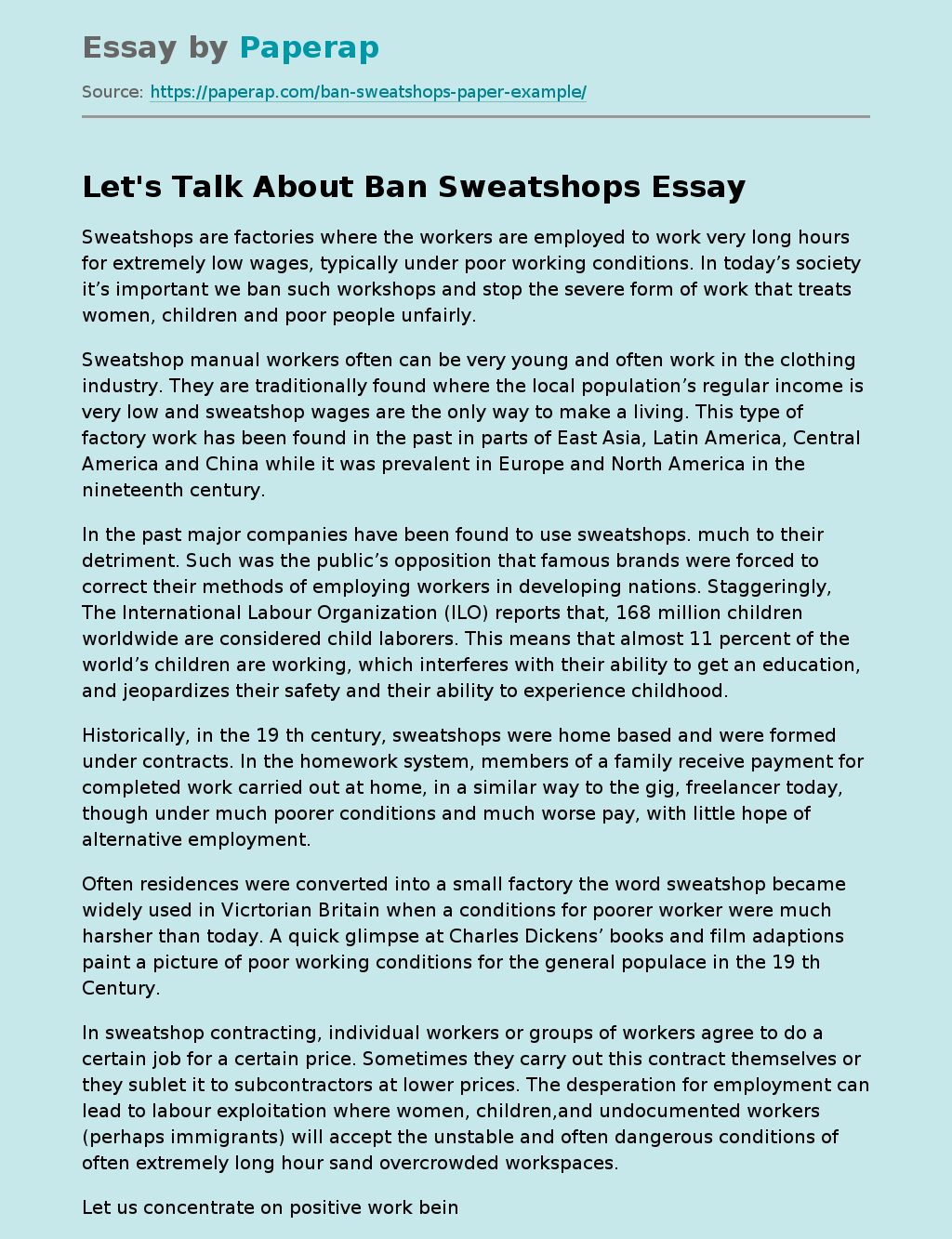Let's Talk About Ban Sweatshops
Sweatshops are factories where the workers are employed to work very long hours for extremely low wages, typically under poor working conditions. In today’s society it’s important we ban such workshops and stop the severe form of work that treats women, children and poor people unfairly.
Sweatshop manual workers often can be very young and often work in the clothing industry. They are traditionally found where the local population’s regular income is very low and sweatshop wages are the only way to make a living.
This type of factory work has been found in the past in parts of East Asia, Latin America, Central America and China while it was prevalent in Europe and North America in the nineteenth century.
In the past major companies have been found to use sweatshops. much to their detriment. Such was the public’s opposition that famous brands were forced to correct their methods of employing workers in developing nations. Staggeringly, The International Labour Organization (ILO) reports that, 168 million children worldwide are considered child laborers.
This means that almost 11 percent of the world’s children are working, which interferes with their ability to get an education, and jeopardizes their safety and their ability to experience childhood.
Historically, in the 19 th century, sweatshops were home based and were formed under contracts. In the homework system, members of a family receive payment for completed work carried out at home, in a similar way to the gig, freelancer today, though under much poorer conditions and much worse pay, with little hope of alternative employment.
Often residences were converted into a small factory the word sweatshop became widely used in Vicrtorian Britain when a conditions for poorer worker were much harsher than today. A quick glimpse at Charles Dickens’ books and film adaptions paint a picture of poor working conditions for the general populace in the 19 th Century.
In sweatshop contracting, individual workers or groups of workers agree to do a certain job for a certain price. Sometimes they carry out this contract themselves or they sublet it to subcontractors at lower prices. The desperation for employment can lead to labour exploitation where women, children,and undocumented workers (perhaps immigrants) will accept the unstable and often dangerous conditions of often extremely long hour sand overcrowded workspaces.
Let us concentrate on positive work being done by international organizations, charities and donors to improve workers conditions. When you realize that $200 a month is seen a good monthly salary for young people in Cambodia its not hard to see how ‘sweat shops’ can form from immoral foreign companies.
Promisingly, a new study reveals a 2007 initiative by the United Nations aiming to promote competitiveness and improve the working conditions of more than one million workers in garment factories across seven developing countries has achieved promising results.
The ‘Better Work’ programme was established in 2007 by the UN’s International Labour Organization (ILO) and the World Bank Group’s International Finance Corporation. Currently engaging 1,300 factories that employ more than 1.6 million workers, the programme operates in seven countries: Cambodia, Bangladesh, Haiti, Indonesia, Jordan, Viet Nam and Nicaragua.
An independent review by Tufts University, the Better Work programme moves factories away from practices leading to long working hours, extremely low pay, dismissal threats, or abuse of probationary contracts. Workers are also seeing an increase in their weekly take-home pay.
Let's Talk About Ban Sweatshops. (2020, Mar 05). Retrieved from https://paperap.com/ban-sweatshops-paper-example/

